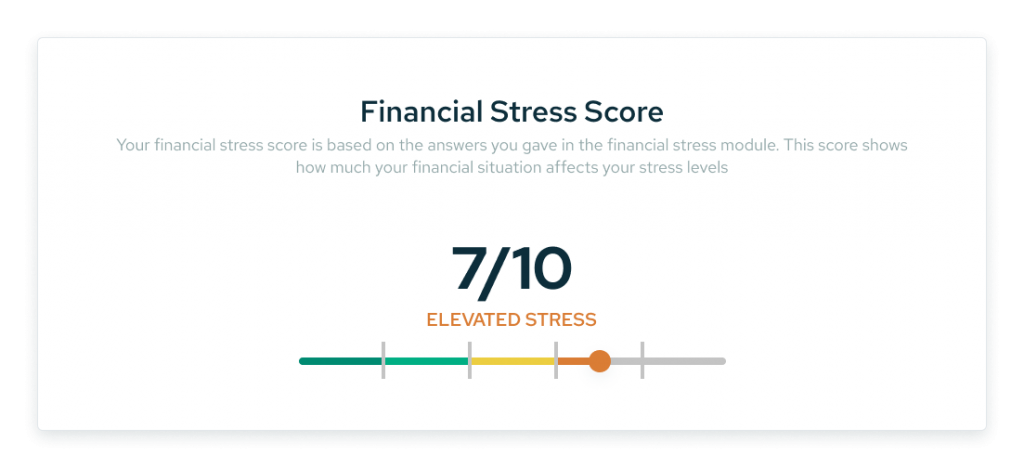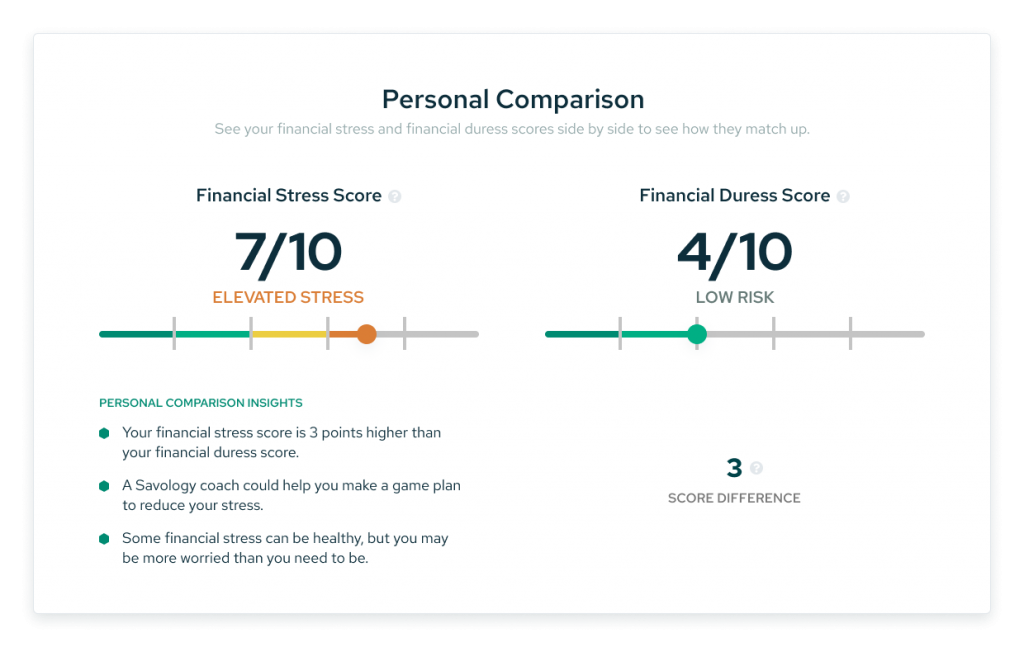According to the American Psychological Association (APA), finances are the number one cause of stress in the United States. According to that same APA survey, over 72% of Americans reported feeling stressed about money at some point in the last month. With so many affected by financial stress, learning to understand, manage, and reduce it is essential to living your best life.
In this article, we’ll cover what financial stress is, the effects it has on people’s lives, how to gauge the level of financial stress you have, and what to do about it.
What exactly is financial stress?
There are many definitions of “financial stress”, but we think the Financial Health Institute’s definition captures its essence well: “A condition that is the result of financial and/or economic events that create anxiety, worry, or a sense of scarcity.”
Financial stress can have many adverse effects on people’s lives. Among those: weight gain (or loss), strain on personal relationships, headaches, insomnia, decreased productivity at work, anxiety, depression, unhealthy coping mechanisms, and more.
It’s important to note that financial stress exists on a spectrum and is not simply a matter of having it, or not. As referenced in the above APA survey, nearly three-quarters of Americans reported feeling stressed about their finances at some point in the last month. This is something that almost everyone deals with, so please understand that you are not alone!
| ❗❗ Money problems can feel overwhelming, but with some time, effort, and support, it can get better. If you are having suicidal thoughts, please get help immediately by calling 1-800-273-TALK or visit suicidepreventionlifeline.org ❗❗ |
What causes financial stress?
Financial stress is caused by a combination of the realities—and perceptions—of your financial situation. Mounting debts, job loss, a large unexpected expense, poor credit, etc., can all lead to increased financial stress levels. Add to that a general feeling of worry about your financial future, a sense that you aren’t making enough money, or that you won’t be able to retire at a reasonable age, and you have a recipe for stress and negativity.
Often this financial stress can cause someone to enter into what some people call “the vicious cycle of financial stress”. First, they experience a money problem, that causes them to feel anxious or depressed, which leads to decreased motivation to fix their financial problems, which leads to increased frustration and anxiety, which leads to more financial problems, and on and on we go.
If you feel like you’re stuck in this cycle, keep reading! We’ve put together some ideas that will help you assess your financial stress, understand its impact on your life, and break the cycle. You can do this.
How do I gauge my financial stress level?
There are a myriad of quizzes, tests, assessments, etc. that will help you identify your financial stress level. These are a great start, but simply gauging your financial stress level may not be enough.
After significant research into the existing tools available, we decided to build our own assessment and integrate it directly into our popular financial planning platform. This new Savology assessment not only helps you gauge your financial stress level, but it also helps you understand the impact financial stress has on your life, and find ways to reduce it.
Once you’ve completed the financial stress assessment, you’ll receive the following:
- A financial stress score number (on a scale of 1-10)
- A social comparison of how your score compares to other Savology users
- Personalized insights to help you understand how your stress score compares to your actual financial situation
- Activities, exercises, and resources that you can use to improve your stress

As is often mentioned when discussing any form of stress, there is a healthy amount of stress that can be motivating and help us avoid danger or harmful situations. The key is finding the right balance.
One of the most powerful aspects of the Savology financial stress assessment lies in its ability to compare your financial stress level to what we call your “financial duress score”, or your risk of experiencing significant personal financial pressure. Your financial duress score is calculated using the information you enter when you create your Savology financial plan.
Too much financial stress is bad for obvious reasons, but too little can be harmful as well. Maybe there are some financial realities in your life that you should be concerned about, and actively working to fix, or change.
Your Savology financial plan puts you in a unique position to go beyond simply assessing your financial stress level, to comparing that stress level to your actual financial situation and seeing if your stress matches the reality of your financial situation.

So what can I do about it?
Once you’ve assessed your financial stress level, a good next step is to make a plan to both reduce your stress level and work on the core financial issues that are causing that stress. Your plan should include the following components—at least:
Determine the root cause(s) of your financial stress
Is it mounting debt? Uncontrolled spending? No retirement plan? Low credit score? Before you can work on solutions, you need to first understand what’s causing the stress. A great place to start identifying these root causes is the Report Card on your Savology financial plan. It will help you understand where you are doing well financially, and what needs to improve.
Devise your solutions
Prioritize the root causes you’ve identified and come up with solutions that address the most important ones first. For example, if you’ve identified credit card debt as a high-priority cause of your financial stress, you could make a plan to request a lower interest rate from your credit card company, look at restructuring your debt, adjusting your budget, and more.
Enlist support
Involve a loved one, accountability partner, financial coach, or even financial counselor in the process. Having someone to support you, someone you can check in with, ask for advice from, etc. is essential to the long-term success of your plan. There is strength in numbers!
Get to work!
Execute on your plan. Identify dates you want to have things done by and stick to them. It often helps to have an accountability partner involved in this step. It can be the same person mentioned above, or someone else. What’s important is that you share your plan and deadlines with someone that can help hold you accountable.
Measure your progress
There is nothing more motivating than starting to see your hard work pay off. Take time to see how you’re doing and congratulate yourself for even the smallest victories. This is also a good opportunity to make any necessary adjustments to your plan. You’ll find that once you’re executing on your plan, there will be some areas that don’t quite make sense in practice and need changing. That’s ok! Flexibility is key here.
Don’t let setbacks get the best of you
Not everything will go according to your plan. Learn to be comfortable with that. The important part is that you are trying, you are heading in the right direction, and that you don’t let setbacks derail your progress.
Final Thoughts
Chances are that financial stress affects you in some form or another. Understanding what financial stress is, gauging your level of financial stress, and then making—and executing—a plan to reduce that stress will improve your physical and mental health and your overall quality of life. You can get started by assessing your financial stress level today if you have a Savology account.







